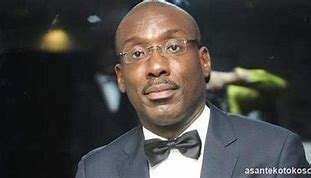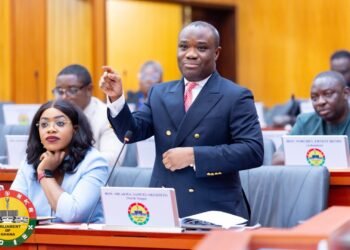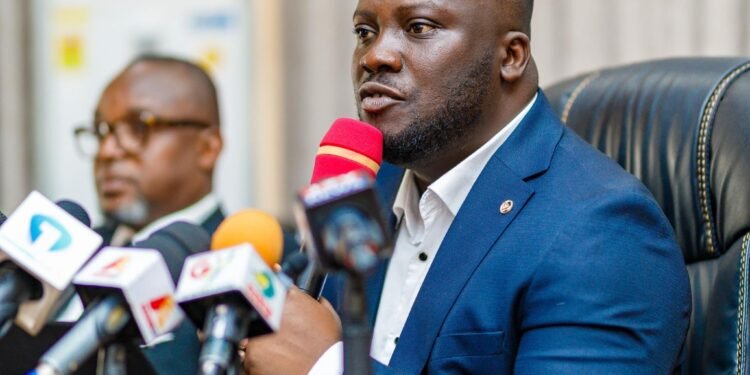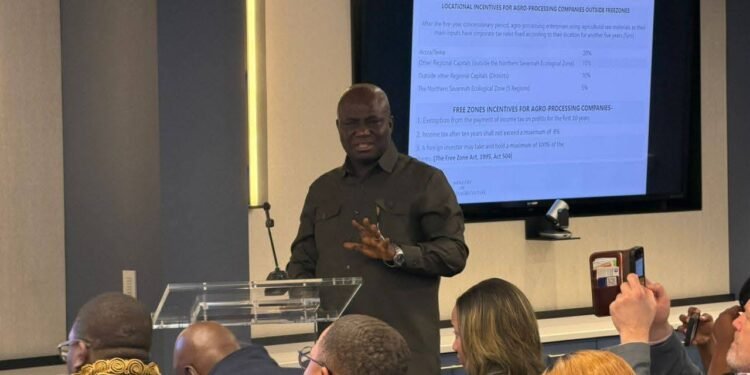As Ghana approaches the 2024 election year, the National President of the Ghana Bar Association (GBA), Yaw Acheampong Boafo, has issued a heartfelt plea to the citizenry, urging them not to succumb to divisive tactics employed by politicians. In his New Year Message, Boafo emphasized the importance of unity and civic responsibility, irrespective of political affiliations.
Boafo implored Ghanaians to be “model citizens” and utilize their full citizenship for national development, regardless of which political party holds power. He reminded the populace that the commonalities that bind them together are more significant than the differences that may seek to divide.
“To our countrymen who need no reminding that 2024 is an election year, we urge you to continue to be model citizens and engage your full citizenship for national development, irrespective of who holds the reins of political power.
“There is more that unites us than divides us. We must cherish our unity in diversity. Let’s act in the hospitality of our forefathers and not allow politicians in their Machiavellian pursuit of political power to divide us on ethnic, religious, and other divisive pranks.”
Yaw Acheampong Boafo
Yaw Acheampong Boafo further urges members of GBA, both in public life and politics, to set standards at all times.
“We will urge members of GBA in public life and politics to set the standards at all times. There’s only one Ghana company limited, and we are all stakeholders,” he stated.
Addressing the potential use of divisive tactics, he cautioned against falling prey to politicians’ Machiavellian pursuits, urging citizens not to allow divisions along ethnic, religious, or other lines.
Highlighting the GBA’s commitment to judicial cooperation, Boafo pledged ongoing collaboration with the judiciary, particularly with Chief Justice Her Ladyship Gertrude Araba Torkonoo. The focus remains on facilitating access to justice reforms for all Ghanaians and ensuring the smooth administration of justice.
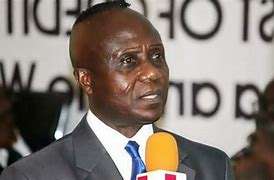
In a related development, Dr. John Kwakye, the Director of Research at the Institute of Economic Affairs (IEA), expressed concerns about the economic mismanagement by Ghana’s major political parties over the past 32 years. Dr. Kwakye called on the presidential candidates of both the New Patriotic Party (NPP) and the National Democratic Congress (NDC) to apologize for the country’s current economic challenges.
In a post, Dr. Kwakye stated that the NPP and NDC must acknowledge their party failures over the past three decades and articulate their plans for turning the economy around. He urged voters to reject candidates who fail to present viable policies for economic transformation.
“NPP and NDC must apologise to Ghanaians for bringing the country, once the shining star of Africa, to its current sordid state. Their presidential candidates should tell us what they are going to do differently to turn the economy around. Otherwise, they don’t deserve our mandate.
“NPP and NDC presidential candidates must first admit their party failures in the past 32 years and tell Ghanaians what they are going to do differently to turn this country around. Otherwise, they should be rejected by the electorate. NPP and NDC have woefully failed Ghana over the past 32 years. Their presidential candidates should openly admit the NPP and NDC failings and tell us what they are going to do differently. Otherwise, the electorate should reject them.”
Dr. John Kwakye
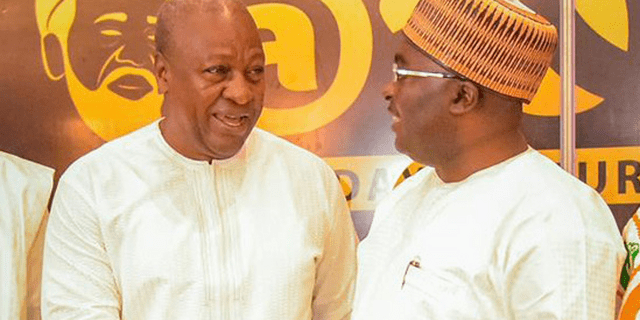
Dr. Kwakye specifically called on former President John Mahama and Vice President Dr. Mahamudu Bawumia, the presidential candidates for the NDC and NPP, respectively, to admit their parties’ past failings openly.
In a democracy, the essence of informed political participation cannot be overstated—it is the lifeblood that sustains the system. Informed citizens, armed with knowledge about policies, candidates, and the broader political landscape, play a pivotal role in shaping the destiny of their nation.
The power of informed political participation lies in its ability to foster an engaged and critical electorate. When citizens are well-informed, they can assess the impact of policies on their lives, make educated voting decisions, and hold elected officials accountable. Informed participation acts as a check on potential abuses of power, ensuring that the democratic process remains a true reflection of the people’s will.
Furthermore, an informed electorate contributes to the formulation of robust public policies. Through active engagement, citizens bring diverse perspectives, ideas, and concerns to the table, enriching the democratic discourse. Informed political participation transforms the act of voting from a mere civic duty into a meaningful expression of individual and collective values.
Ultimately, the strength of a democracy hinges on the enlightenment of its citizens. As Thomas Jefferson asserted, “An informed citizenry is at the heart of a dynamic democracy.” In embracing the responsibility of staying informed, citizens become architects of the democratic edifice, laying the foundation for a just and prosperous society.
The messages from the GBA President and the IEA Director underscore the need for unity, civic responsibility, and a demand for accountability in political leadership. The electorate’s role in ensuring a transparent and constructive electoral process becomes increasingly pivotal as the nation approaches the polls.
READ ALSO: Salt Miners Vow To Resist Ejection By Electrochem Ghana Limited

